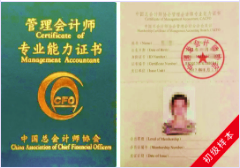英語六級40天突破講義與筆記之閱讀理解(5)
A new era is upon us. Call it what you will: the service economy, the information age, the knowledge society. It all translates to a fundamental change in the way we work. Already we’ re partly there. The percentage of people who earn their living by making things has fallen dramatically in the Western World. Today the majority of jobs in America, Europe and Japan (two thirds or more in many of these countries) are in the service industry, and the number is on the rise. More women are in the work force than ever before. There are more part-time jobs. More people are self-employed. But the breadth of the economic transformation can’ t be measured by numbers alone, because it also is giving rise to a radical new way of thinking about the nature of work itself. Long-held notions about jobs and careers, the skills needed to succeed, even the relation between individuals and employers-all these are being challenged.
We have only to look behind to get some sense of what may lie ahead. No one looking ahead 20 years possibly could have foreseen the ways in which a single invention, the chip, would transform our world thanks to its applications in personal computers, digital communications and factory robots. Tomorrow’ s achievements in biotechnology, artificial intelligence or even some still unimagined technology could produce a similar wave of dramatic changes. But one thing is certain: information and knowledge will become even more vital, and the people who possess it, whether they work in manufacturing or services, will have the advantage and produce the wealth. Computer knowledge will become as basic a requirement as the ability to read and write. The ability to solve problems by applying information instead of performing routine tasks will be valued above all else. If you cast your mind ahead 10 years, information services will be predominant. It will be the way you do your job.
25. Which of the following best summarized the main idea of the passage?
A) Musical instruments developed through the years will sooner later be replaced by computers.
B) cannot be passed on to future generation unless it is recorded.
C) Folk songs cannot spread far unless they are printed on music sheets
D) The development of music culture is highly dependent or its material aspect
Material culture refers to the touchable, material "things"-physical objects that can be seen, held, felt, used-that a culture produces. Examining a culture’s tools and technology can tell us about the group’s history and way of life. Similarly, research into the material culture of music can help us to understand the music-culture. The most vivid body of "things" in it, of course, are musical instruments. We cannot hear for ourselves the actual sound of any musical performance before the 1870s when the phonograph was invented, so we rely on instruments for important information about music-cultures it the remote past and their development. Here we have two kinds of evidence: instruments well preserved and instruments pictures in art. Through the study of instruments, as well preserved Paintings, written documents, and so on, we can explore the movement of music from the Neat East to China over a thousand years ago, or we can outline the spread of Near eastern influence to Europe that results in the development of most of the instruments on the symphony orchestra.
Sheet music or printed music, too, is material culture. Scholars once defined
folk music-cultures as those in with people learn and sing music by ear rather than from print, but research show mutual influence among oral and written sources during the past few centuries in Europe, Britain, and America, printed versions limit variety because they tend to standardize any song, yet they stimulate people to create new and different songs. Besides, the ability to read music notation has a far-reaching effect on musicians and, when it becomes widespread, on the music-culture as a whole.
One more important part of music’s material culture should be singled out the influence of the electronic media-radio, record player, tape recorder, television, and videocassette, with the future promising talking and singing computers and other developments. This all part of the "information revolution," a twentieth century phenomenon as important as the industrial revolution was in the nineteenth. These electronic media are not just limited to modem nations; they have affected music-cultures all over the globe.
25. What is the passage mainly about?
A) different ways of treating socio-cultural elements in the three new English dictionaries.
B) A comparison of people’s opinions on the cultural content in the three new English dictionaries.
C) The advantages of the BBC dictionary over Oxford and Longman.
D) The user-friendliness of the three new English dictionaries.
Three English dictionaries published recently all lay claim to possessing a "new" feature. The BBC English Dictionary contains background information on l, 000 people and places prominent in the news since 1988; the Oxford Advanced Learner’s Dictionary: Encyclopedic Edition is the OALD plus encyclopedic entries; the Longman Dictionary of English Language and Culture is the LME plus cultural information.
The key fact is that all three dictionaries can be seen to have a distinctly "cultural" as well as language learning content. That being said, the way in which they approach the cultural element is not identical, making direct comparisons between the three difficult.
While there is some common ground between the encyclopedic and cultural entries for the Oxford and Longman dictionaries, there is a clear difference. Oxford lays claim to being encyclopedic on content whereas Longman distinctly concentrates on the language and culture of the English-speaking world. The Oxford dictionary can therefore stand more vigorous scrutiny for cultural bias than the Longman publication because the latter does not hesitate about viewing the rest of the world from the cultural perspectives of the English-speaking world. The cultural objectives of the BBC dictionary are in turn more distinct still. Based on an analysis of over 70 million words recorded from the BBC World Service and National Public Radio of Washington over a period of four years, their 1,000 brief encyclopedic entries are based on people and places that have featured in the news recently. The intended user they have in mind is a regular listener to the World Service who will have a reasonable standard of English and a developed skill in listening comprehension.
In reality, though, the BBC dictionary will be purchased by a far wider range of language learners, as will the other two dictionaries. We will be faced with a situation where many of the users of these dictionaries will at the very least have distinct socio-cultural perspectives and may have world views which are totally opposed and even hostile to those of the West. Advanced learners from this kind of background will not only evaluate a dictionary on how user-friendly it is but will also have definite views about the scope and appropriateness of the various sociocultural entries.
35. What is the passage mainly about?
A) Dressing for effect.
B) How to dress appropriately.
C) Managerial positions and clothing.
D) Dressing for the occasion.
Clothes play a critical part in the conclusions we reach by providing clues to who people are, who they are not, and who they would like to be. They tell us a good deal about the wearer’s background, personality, status, mood, and social outlook.
注:critical重要的
Since clothes are such an important source of social information, we can use them to manipulate people’s impression of us. Our appearance assumes particular significance in the initial phases of interaction that is likely to occur. An elderly middle-class man or woman may be alienated(疏遠……) by a young adult who is dressed in an unconventional manner, regardless of the person’s education, background, or interests.
注:manipulate控制,操縱
課程推薦
- 中級會計職稱普通班
- 中級會計職稱特色班
- 中級會計職稱精品班
- 中級會計職稱實驗班
| 課程班次 | 課程介紹 | 價格 | 購買 |
|---|---|---|---|
| 普通班 | 班次特色 |
240元/一門 450元/兩門 680元/三門 |
購買 |
| 課程班次 | 課程介紹 | 價格 | 購買 |
|---|---|---|---|
| 精品班 | 班次特色 |
680元/一門 1200元/兩門 1800元/三門 |
購買 |
- 中級會計職稱機考模擬系統綜合版
- 中級會計職稱機考模擬系統實驗版
| 模擬題庫 | 題庫介紹 | 價格 | 購買 |
|---|---|---|---|
綜合版 |
題庫特色 |
120元/一門 200元/兩門 240元/三門 |
購買 |
| 模擬題庫 | 題庫介紹 | 價格 | 購買 |
|---|---|---|---|
| 實驗版 | 題庫特色 |
240元/一門 480元/兩門 720元/三門 |
購買 |
最新新聞
網站地圖
專業知識水平考試:
考試內容以管理會計師(中級)教材:
《風險管理》、
《績效管理》、
《決策分析》、
《責任會計》為主,此外還包括:
管理會計職業道德、
《中國總會計師(CFO)能力框架》和
《中國管理會計職業能力框架》
能力水平考試:
包括簡答題、考試案例指導及問答和管理會計案例撰寫。
- 管理會計師PCMA 免費試聽
- 中級管理會計師 免費試聽
- 稅務管理師 免費試聽
- 智能財務師 免費試聽
- 國際注冊會計師 免費試聽
- 國際財務管理師 免費試聽
- 初級會計職稱考試 免費試聽
- 中級會計職稱考試 免費試聽
- 注冊會計師考試 免費試聽
- 全國外貿會計考試 免費試聽
- 會計實務操作 免費試聽
- 管理會計師 免費試聽
-
初級會計職稱招生方案
·特色班
·精品班
·實驗班

初級會計職稱網上輔導 -
中級會計職稱招生方案
·普通班
·特色班
·精品班

中級會計職稱網上輔導
專業知識水平考試:
考試內容以管理會計師(中級)教材:
《風險管理》、
《績效管理》、
《決策分析》、
《責任會計》為主,此外還包括:
管理會計職業道德、
《中國總會計師(CFO)能力框架》和
《中國管理會計職業能力框架》
能力水平考試:
包括簡答題、考試案例指導及問答和管理會計案例撰寫。

 您現在的位置:
您現在的位置:




